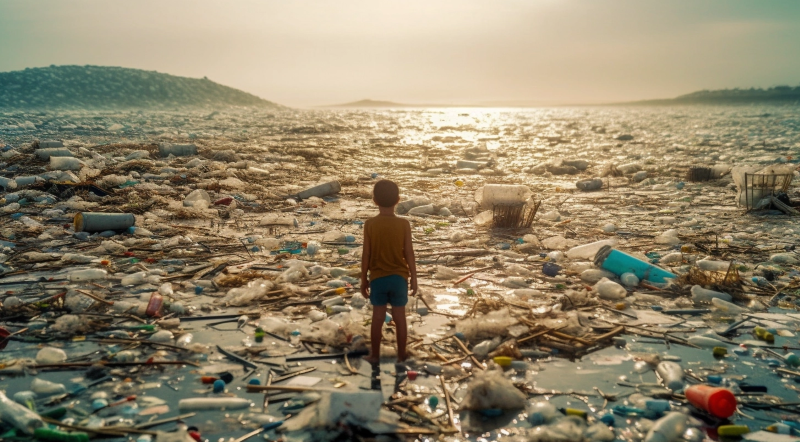
On June 1, two UN independent experts issued a call to action, urging the world to combat the escalating problem of plastic pollution, which poses a threat to human rights. This appeal coincides with ongoing negotiations for an international treaty on plastic pollution and precedes World Environment Day on June 5.
David R. Boyd, UN Special Rapporteur on human rights and the environment, and Marcos Orellana, Special Rapporteur on toxics and human rights, highlighted the exponential increase in plastic production in recent decades, resulting in the generation of 400 million tonnes of plastic waste annually. They referred to this as an overwhelming toxic tidal wave that pollutes the environment and adversely affects human rights throughout the entire life cycle of plastic.
The experts emphasized that every stage of the plastics cycle is detrimental to people’s rights to a healthy environment, life, health, food, water, and an adequate standard of living. Plastic production releases hazardous substances and heavily relies on fossil fuels, while the composition of plastic itself contains toxic chemicals, posing risks to humans and nature. Furthermore, 85% of single-use plastics end up in landfills or are dumped in the environment. The experts criticized incineration, recycling, and other inadequate solutions, which exacerbate the problem. They noted that plastic, microplastics, and the hazardous substances they contain can be found in the food we consume, the water we drink, and the air we breathe.
The statement also addressed the disproportionate impact of plastic-related pollution and waste on marginalized communities. The experts expressed concern about environmental injustices faced by these groups due to heightened exposure to plastic pollution, often residing in locations referred to as ‘sacrifice zones,’ near facilities such as open-pit mines, petroleum refineries, steel plants, and coal-fired power stations.
Moreover, plastic pollution has made an alarming contribution to climate change, an aspect that is frequently overlooked. Plastic particles found in oceans hinder the ability of marine ecosystems to remove greenhouse gases from the atmosphere.
As Special Rapporteurs, Mr. Boyd and Mr. Orellana receive their mandates from the UN Human Rights Council. They highlighted the adoption of landmark resolutions by the Council and the UN General Assembly over the past two years, recognizing the human right to a clean, healthy, and sustainable environment. These resolutions should inspire and guide initiatives aimed at addressing plastic pollution.
Negotiations for an internationally binding treaty to combat plastic pollution, including in marine environments, are currently underway. The UN Environment Programme (UNEP) projects that by 2040, the amount of plastic waste entering aquatic ecosystems could reach 23 to 37 million tonnes per year. The second meeting of the Intergovernmental Negotiating Committee on Plastic Pollution (INC-2), held in Paris, is set to conclude on Friday. The delegates have a deadline to reach an agreement on the treaty by 2024.


Appreciating the dedication you put into your website and in depth information you present. It’s awesome to come across a blog every once in a while that isn’t the same old rehashed information. Fantastic read! I’ve saved your site and I’m including your RSS feeds to my Google account.